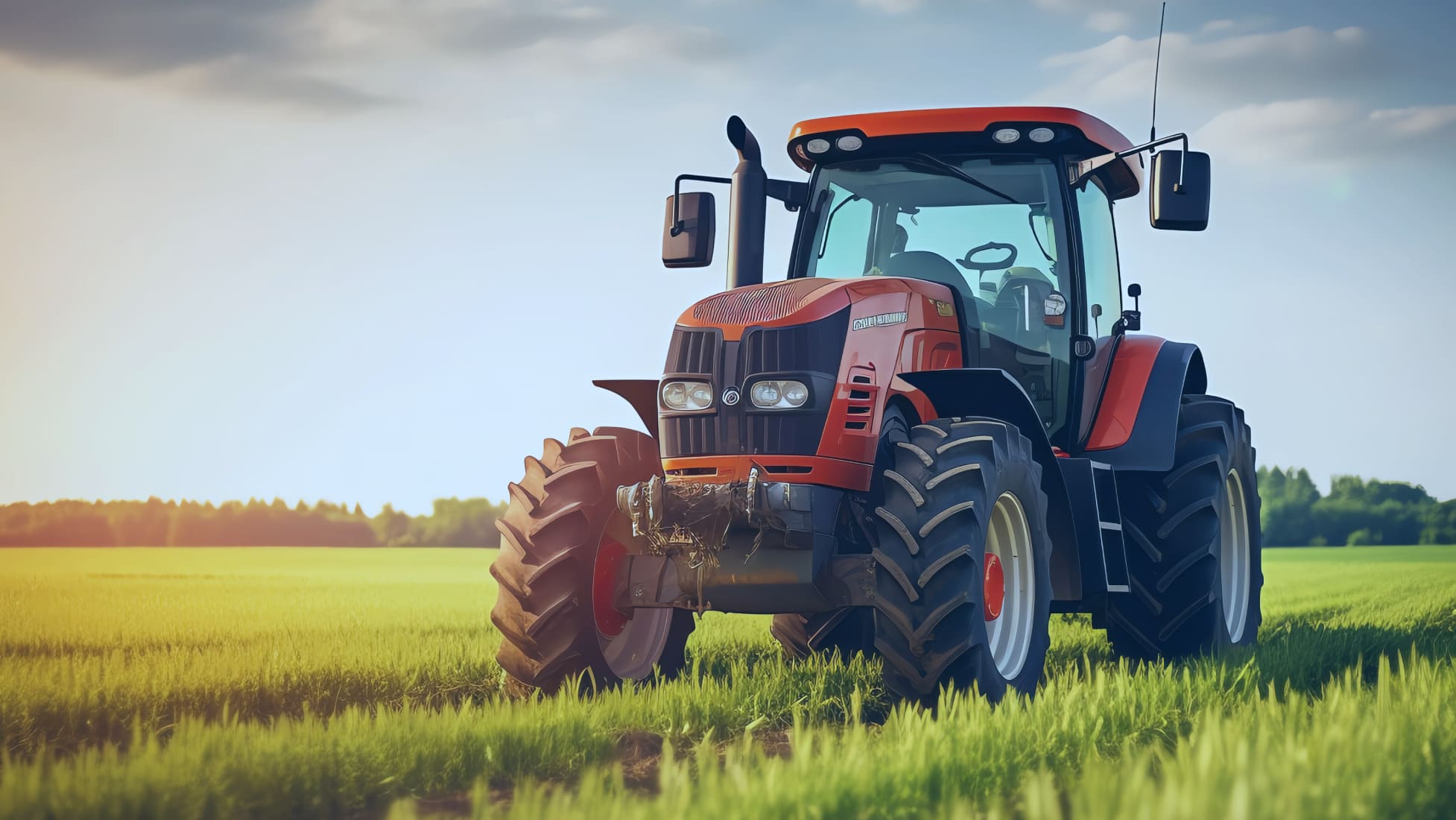The world of agriculture has come a long way from manual plowing and planting to the adoption of technology-driven solutions aimed at enhancing efficiency and productivity. Among these advancements, GPS tracking technology stands out as a pivotal innovation, transforming how farmers manage and operate their tractors and, by extension, their entire farming operations. GPS (Global Positioning System) tracking for tractors is not just about locating these essential machines; it’s about harnessing data and insights to make informed decisions that lead to better agricultural outcomes.
What is GPS Tracking?
GPS tracking is a technology that uses the Global Positioning System to determine the precise location of a vehicle, in this case, a tractor, anywhere on the farm. This technology provides real-time data on the tractor’s position, movement, and operational status, offering a wealth of information that can be used to enhance agricultural practices.
Integration with Tractors
Modern tractors are equipped with GPS receivers and navigation systems that allow them to interpret signals from satellites. This setup enables the accurate mapping of fields, guiding tractors along the most efficient routes, and ensuring precise placement of seeds, fertilizers, and pesticides.
Primary Functions and Data Provided
GPS tracking systems for tractors offer various functionalities, including:
- Auto-steering, which helps in maintaining straight and accurate lines across fields, minimizing overlaps and gaps.
- Field mapping, allowing farmers to create detailed maps of their fields, including topography, boundaries, and crop conditions.
- Monitoring tractor performance and usage, providing insights into fuel consumption, hours of operation, and maintenance needs.
This foundational technology paves the way for enhanced farming efficiency, which we will explore in the next section.
Enhancing Farming Efficiency
Optimizing Field Operations
GPS tracking for tractors has revolutionized field operations by enabling precision agriculture. This technology allows for meticulous planning and execution of farming activities, significantly enhancing operational efficiency. For instance, with GPS-guided auto-steering, tractors can follow predetermined paths with minimal deviation, ensuring every inch of the field is utilized effectively. This precision reduces the overlap of rows and missed spots, common issues with manual operation, thus saving time and resources.
Tasks Made More Efficient by GPS
- Planting: GPS technology enables precise seed placement, optimizing spacing and depth for ideal growth conditions.
- Fertilizing: By mapping out the exact nutritional needs of different field zones, GPS tracking ensures that fertilizers are distributed efficiently, targeting areas that need it the most.
- Harvesting: GPS tracking streamlines the harvesting process, guiding machinery along the most efficient routes and ensuring that crops are harvested at their peak.
Precision Agriculture Role
The cornerstone of precision agriculture is data, and GPS tracking is a vital source. By analyzing GPS data, farmers can identify patterns and variations within their fields, allowing for targeted interventions. This approach leads to a more efficient use of inputs and a significant increase in the overall productivity of the farm.
Cost Reduction and Resource Management
Operational Cost Savings
One of the most compelling benefits of GPS tracking for tractors is the substantial cost savings it can offer. By optimizing routes and ensuring precise application of inputs, farmers can significantly reduce the amount of fuel, fertilizer, and pesticides used. Additionally, GPS tracking minimizes the wear and tear on machinery, extending the lifespan of tractors and reducing the need for frequent repairs or replacements.
Examples of Cost Savings
Consider a farm that implements GPS tracking for its tractors. By reducing overlap in planting and harvesting operations, the farm can save on seeds, fuel, and labor. Such efficiency not only lowers operational costs but also boosts profitability in the long run.
Impact on Fuel Consumption, Labor Costs, and Time Management
With GPS tracking, tractors operate more efficiently, directly impacting fuel consumption. Less time spent on the field due to optimized routes and automated operations means lower fuel costs and reduced labor hours. This efficient time management allows farmers to allocate resources more effectively, focusing on other critical aspects of their operations.
Increasing Crop Yields
Link Between GPS Tracking and Productivity
The precision farming practices enabled by GPS tracking directly contribute to increased crop yields. By ensuring accurate planting, fertilizing, and watering, GPS technology helps in creating optimal growing conditions for crops. This accuracy not only improves the health and yield of crops but also reduces the environmental impact of farming operations.
Data Analysis in Decision Making
The data collected through GPS tracking is invaluable for making informed decisions. Farmers can analyze this data to understand the effectiveness of different farming strategies and make adjustments as needed. This iterative process, informed by accurate, real-time data, ensures continuous improvement in crop management and yield.
Environmental Benefits
Reduction in Chemical Use
One of the most significant environmental benefits of GPS tracking in agriculture is the reduction in the use of chemicals such as fertilizers and pesticides. Precision agriculture allows for the targeted application of these substances, ensuring that only the necessary amounts are used. This approach minimizes runoff into nearby water bodies and reduces the overall environmental footprint of farming operations. By mapping field variability, GPS tracking ensures that chemicals are applied where they are needed most, promoting healthier soil and reducing the risk of over-application.
Impact on Soil and Water Conservation
GPS-guided farming practices contribute significantly to soil and water conservation. Techniques like controlled traffic farming, enabled by GPS tracking, reduce soil compaction, which can otherwise limit crop growth and increase runoff. By optimizing field operations, farmers can maintain the integrity of the soil structure, promoting water infiltration and retention. This not only enhances the sustainability of water resources but also supports the long-term viability of the land.
Contribution to Sustainable Farming Practices
GPS tracking is a cornerstone of sustainable farming, enabling practices that preserve the environment while maintaining or increasing productivity. By providing data for precise farming decisions, GPS technology helps in reducing the carbon footprint of agricultural operations and supports the conservation of natural resources. As the global community becomes increasingly focused on sustainability, the role of GPS tracking in promoting environmentally friendly farming practices is more important than ever.
Future of Farming: GPS Innovations and Trends
Emerging Trends in GPS Technology
The future of GPS tracking in agriculture is bright, with continuous innovations aimed at further enhancing efficiency, productivity, and sustainability. One emerging trend is the integration of GPS tracking with other technologies such as drones, satellite imagery, and IoT (Internet of Things) devices. These integrations allow for more detailed data collection and analysis, offering farmers unprecedented insights into their operations and the health of their crops.
Potential Future Benefits
Future advancements in GPS tracking technology are expected to bring about even more significant benefits for the agricultural sector. Improved accuracy and reliability of GPS systems will enable even more precise farming operations, further reducing waste and increasing yields. Additionally, advancements in data analytics and artificial intelligence will provide farmers with predictive insights, allowing them to anticipate and mitigate potential issues before they impact productivity.
Advancements in Tractor GPS Tracking
As GPS technology continues to evolve, we can expect to see tractors equipped with more advanced GPS tracking systems. These systems will not only guide tractors with greater precision but also collect and analyze a wider range of data, from soil moisture levels to crop health indicators. This evolution will empower farmers to make even more informed decisions, optimize their operations, and contribute to the global food supply in a sustainable manner.
Conclusion
GPS tracking has changed farming.. GPS tech is a must-have in modern farming. It lets farmers do their work better and smarter. With GPS, every step in farming gets more precise. This means less waste and more food.
The future of farming with GPS looks bright. New tech will make GPS even better. It will let farmers see and do things they’ve never done before. This means healthier crops and less harm to the planet.
GPS in farming is a game-changer. It makes farms more profitable and green. As we keep improving this tech, farming will only get better. It’s key for feeding more people and taking care of our world.
The importance of GPS tracking in agriculture cannot be overstated. As we continue to embrace and develop this technology, the potential for transforming farming practices and outcomes is limitless. For farmers and the global community alike, the journey towards more efficient, productive, and sustainable agriculture is just beginning, with GPS tracking leading the way.



